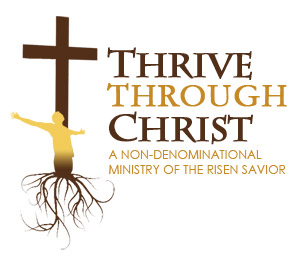
Jesus was furthering His ministry throughout Judea where He was baptized by John the Baptist, who reaffirmed the deity of Christ when he claimed He was of God, and came from Heaven, the very message John had been preaching as he fulfilled his divinely appointed mission to prepare the way for the Lord.
“1 Therefore, when the Lord knew that the Pharisees had heard that Jesus made and baptized more disciples than John 2 (though Jesus Himself did not baptize, but His disciples), 3 He left Judea and departed again to Galilee. 4 But He needed to go through Samaria.” (John 4:1-4)
The Pharisees opposed any teaching outside the boundaries set by the Mosaic law, and although they did not support John the Baptist’s ministry. As Jesus’ popularity grew in the region, and He knew the Pharisees became increasingly concerned with Him, Christ decided to avoid conflict and headed North to Galilee where He continued to baptize in the Holy Spirit as His disciples baptized in water.
“5 So He came to a city of Samaria which is called Sychar, near the plot of ground that Jacob gave to his son Joseph. 6 Now Jacob’s well was there. Jesus therefore, being wearied from His journey, sat thus by the well. It was about the sixth hour.” (John 4:5-6)
On His way to Galilee, Jesus traveled through Samaria to a cursed city that was close to land owned by Joseph’s descendants. There, a spring fed well dug by Jacob was used by the locals where around noon time, Jesus sat and waited for the Samaritan woman to arrive.
“7 A woman of Samaria came to draw water. Jesus said to her, “Give Me a drink.” 8 For His disciples had gone away into the city to buy food. 9 Then the woman of Samaria said to Him, “How is it that You, being a Jew, ask a drink from me, a Samaritan woman?” For Jews have no dealings with Samaritans.” (John 4:7-9)
Jesus crossed the rigid social custom that forbade Jews to speak to Samaritans when He asked the woman to give him a drink, specially a woman of such poor status and reputation. But Christ had a plan, and He would use the Samaritan woman to further His ministry.
“10 Jesus answered and said to her, “If you knew the gift of God, and who it is who says to you, ‘Give Me a drink,’ you would have asked Him, and He would have given you living water.”” (John 4:10)
After the woman asked Jesus why He chose to ignore the deep social animosity that existed between the Jews and Samaritans, the Lord answered her figuratively by revealing He was indeed God in the flesh, and the living water He poured out lead to eternal life.
“11 The woman said to Him, “Sir, You have nothing to draw with, and the well is deep. Where then do You get that living water? 12 Are You greater than our father Jacob, who gave us the well, and drank from it himself, as well as his sons and his livestock?”” (John 4:11-12)
The woman did not understand the difference between well water and living water, hence her reply to Jesus when she noted He did not have a bucket to draw water from Jacob’s well, or any other well for that matter.
“13 Jesus answered and said to her, “Whoever drinks of this water will thirst again, 14 but whoever drinks of the water that I shall give him will never thirst. But the water that I shall give him will become in him a fountain of water springing up into everlasting life.”” (John 4:13-14)
Jesus then revealed how the water of life He pours out leads to eternal life, as its source is the Holy Spirit, an everlasting spring who dwells in the soul of those who believe and place their trust in the Savior.
“15 The woman said to Him, “Sir, give me this water, that I may not thirst, nor come here to draw.”” (John 4:15)
Still, the woman did not realize the water Jesus spoke of was of spiritual nature, and even though she may become a fountain of living water, she would still thirst and need the water she came to draw from Jacob’s well, just as all believers get thirsty and hungry.
“16 Jesus said to her, “Go, call your husband, and come here.” 17 The woman answered and said, “I have no husband.” Jesus said to her, “You have well said, ‘I have no husband,’ 18 for you have had five husbands, and the one whom you now have is not your husband; in that you spoke truly.”” (John 4:16-18)
Jesus noticed the woman still did not understand what He was saying, so He shifted the conversation to help her realize who she was speaking to, and how she needed to be healed spiritually. In doing so, he revealed that He knew her intimately and He was well aware of the immoral choices she had made even though they never met before.
“19 The woman said to Him, “Sir, I perceive that You are a prophet. 20 Our fathers worshiped on this mountain, and you Jews say that in Jerusalem is the place where one ought to worship.”” (John 4:19-20)
When she heard Jesus speak of her life with such clarity, and expose the poor choices she had made, the woman became aware of and testified He had divine powers in spite of being a Jew, whom Samaritans did not believe were God’s people.
“21 Jesus said to her, “Woman, believe Me, the hour is coming when you will neither on this mountain, nor in Jerusalem, worship the Father. 22 You worship what you do not know; we know what we worship, for salvation is of the Jews.” (John 4:21-22)
Here, Jesus delivers a prophecy about the forthcoming destruction of Jerusalem and its temple. He then called on the woman to be more deliberate about the way she worshiped God, by worshipping the Father everywhere and in all the things she did instead of concentrating her worship in a geographical place, albeit it the mountain or Jerusalem because the Father is everywhere.
“23 But the hour is coming, and now is, when the true worshipers will worship the Father in spirit and truth; for the Father is seeking such to worship Him. 24 God is Spirit, and those who worship Him must worship in spirit and truth.” (John 4:23-24)
Jesus continues His exhortation of the the Samaritan woman by revealing that God is seeking spiritual worshipers rather than levitical followers, for believers who allow the Holy Spirit to dwell within them and lead them to Him. The Father created us to worship Him, not only at the altar, but in all we do.
“25 The woman said to Him, “I know that Messiah is coming” (who is called Christ). “When He comes, He will tell us all things.” 26 Jesus said to her, “I who speak to you am He.”” (John 4:25-26)
When the woman showed her faith in the promise of a Messiah by mentioning His coming, and that He will reveal the truth about God, Jesus declared He was the Messiah. This was the first time Jesus admitted who He was, and He chose to do so with the lesser of audiences, a sinful Samaritan woman in need of repentance.
It’s no surprise the Christ continues to manifest His presence in people who need Him most, the lost, the oppressed and the lesser among us… Let’s pray!
Father God;
We thank you for your blessings in our lives,
We praise you Lord for the wisdom found through the gospel of John,
We ask you Lord to inspire us to live out the apostle’s writings
As we continue to learn more about you through your word.
Lord we ask you to strengthen us each day as we endure through battles,
Allow us to praise and love each other through faith in you Jesus,
Shield us from evil through the truth, the gospel, salvation and prayer,
Guide us to abide by your word as we spread your gospel to one and all
Becoming examples of Christian faith through our character as we walk the narrow path.
God we pray that you will continue to bless us, to bless our lives and fill us with hope
We ask you Lord to guide our footsteps and lead us to the way everlasting,
Through faith in you Lord we seek salvation and our place with you in Heaven
According to your ways, your everlasting wisdom and strength.
May your will be done
In our lives, for your life.
We thank you for your love and all you bless us with each day.
Praise God,
Amen!
This message was written by Daniel St.Pierre
Email: danielstpierre@thrivethroughchrist.com
